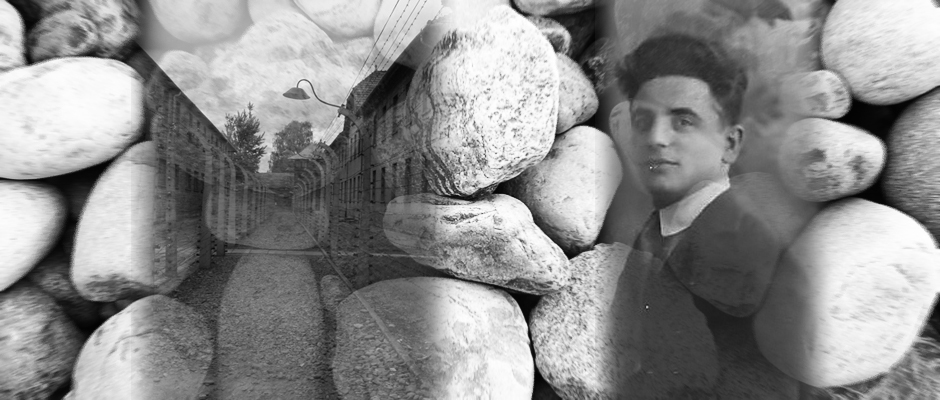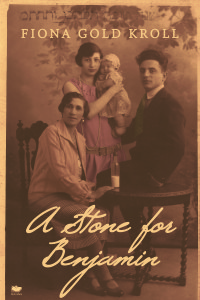A Stone For Benjamin by Fiona Gold Kroll
Since childhood, Fiona has been drawn to a photograph of her great-uncle Benjamin Albaum, a Jewish man who disappeared from Paris at the beginning of World War II.
A Stone for Benjamin by Fiona Gold Kroll is the compelling story of Fiona’s quest to discover the circumstances surrounding the disappearance of her grandmother’s brother Benjamin, who lived in Paris during WWII. Fiona begins her powerful journey searching for clues with nothing more than a misspelled name old photographs and family stories. Determined to uncover the truth about Benjamin’s life and death and France’s betrayal of its Jewish population, Fiona pieces together her great-uncle’s life, elevating Benjamin’s legacy from a number tattooed on his arm at Auschwitz to a more complete memory of the vibrant man he was. A Stone for Benjamin by Fiona Gold Kroll is available at Amazon.com, Amazon.ca, Iguana Books and your favorite on-line book seller.
KIRKUS REVIEW
“Kroll comes from a close-knit Jewish family in postwar London, and in her debut memoir, she traces her ancestors’ migration from Eastern to Western Europe before World War II.
In searching for her family’s lost history, Kroll becomes particularly interested in her great-uncle Benjamin, whose striking portrait captivates her. He’s her beloved grandmother’s brother, though her family is unaware of his fate. After years of searching, she discovers that he died at Auschwitz in 1943, but the fact of his death doesn’t provide closure; on the contrary, it sparks her curiosity. She becomes determined to uncover as much as she can about Benjamin and his family. Her quest takes her to Paris, where Benjamin was living when he was captured by the Nazis; Poland, where she tours Auschwitz; and Israel, where she’s moved to tears at Yad Vashem, the Holocaust memorial. Kroll’s prose is eloquent and evocative, and her writing is admirably self-aware. At times, she acknowledges that her family might think she’s obsessed with a ghost, and she wonders if she is, in fact, too rooted in the past. But the goal of her writing is both clear and incredibly important. Benjamin’s life story—his normal prewar life, his family’s separation and his time in a concentration camp—is, like many real-life narratives, a paradox: remarkable and riveting without being terribly original. Yet the point of Kroll’s work isn’t to put forth an untold or unusual story; she tells Benjamin’s tale “to elevate him from a mere number—the number tattooed on his arm in Auschwitz.” In doing so, she realizes that she’s helping, decades later, to “negate the Nazi doctrine of dehumanizing their victims.”
A detailed examination of a Holocaust victim’s life and a considerate, thought-provoking look into why Holocaust narratives are important.”
Purchase now on Barnes & Noble
Purchase now on Kobo
Purchase now on Chapters/Indigo



